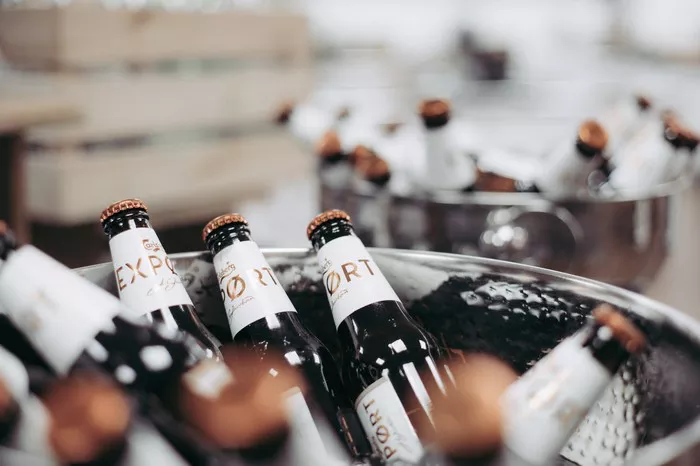Prosecco, the effervescent Italian sparkling wine, has captured the hearts and palates of wine enthusiasts worldwide. Its delicate bubbles, refreshing taste, and versatility make it a popular choice for celebrations, gatherings, or even casual sipping. But for those who enjoy Prosecco less frequently, a lingering question often arises: How long does Prosecco keep unopened? Understanding the shelf life of this beloved bubbly is essential for ensuring optimal enjoyment and preserving its quality. In this article, we delve into the factors influencing the longevity of unopened Prosecco and offer guidance on storage, expiry, and maximizing its lifespan.
The Science Behind Prosecco Preservation
At the heart of Prosecco’s preservation lies the interaction between its components: alcohol, carbon dioxide, acidity, and sugars. Unlike still wines, Prosecco undergoes a secondary fermentation process, where carbon dioxide is trapped in the bottle, creating its signature effervescence. This process, known as the Charmat method, contributes to Prosecco’s freshness and fizziness. However, maintaining these qualities requires careful handling and storage. So, how long does Prosecco keep unopened, and what factors influence its longevity?
Understanding Expiry Dates: A Timeline of Freshness
The longevity of unopened Prosecco largely depends on its production quality, bottling techniques, and storage conditions. Generally, a standard bottle of Prosecco maintains its freshness for up to three years from the date of bottling. However, this timeframe can vary based on several factors. Quality Prosecco from reputable producers often boasts a longer shelf life, thanks to stringent production standards and superior ingredients. Conversely, cheaper or mass-produced varieties may deteriorate more rapidly.
The Role of Bottling Date and Vintage
One key determinant of Prosecco’s shelf life is the bottling date. While Prosecco is typically consumed young for its vibrant flavors and aromas, certain varieties labeled as “Prosecco Superiore” or “DOCG” (Denominazione di Origine Controllata e Garantita) may benefit from aging. These premium Proseccos, made from select grapes grown in specific regions, often exhibit greater complexity and depth over time. However, even these exceptional bottles have limits to their longevity, typically reaching their peak within five years of bottling.
Preservation Predicament: Factors Affecting Shelf Life
Beyond the bottling date, several external factors can impact the shelf life of unopened Prosecco. Exposure to light, temperature fluctuations, and storage position all play crucial roles in maintaining its quality. Ideally, Prosecco should be stored in a cool, dark place, away from direct sunlight and heat sources. Fluctuations in temperature can accelerate chemical reactions within the wine, leading to premature aging and loss of flavor. Additionally, storing Prosecco upright helps minimize the surface area in contact with the cork, reducing the risk of oxidation and spoilage.
Cracking the Code: Deciphering Expiry Labels
For consumers seeking clarity on Prosecco’s freshness and expiration, deciphering the labeling can provide valuable insights. While Prosecco bottles typically don’t feature explicit expiry dates like perishable goods, they often include production codes or lot numbers. These alphanumeric codes, usually located near the bottle’s neck or base, offer information on the bottling date and batch details. By decoding these labels or consulting the producer’s website, consumers can determine the age and authenticity of their Prosecco.
Maximizing Longevity: Tips for Storage and Preservation
To extend the shelf life of unopened Prosecco and preserve its effervescence, adopting proper storage practices is paramount. Firstly, ensure that the bottle is sealed tightly with its original cork or closure to prevent any air from entering. Next, store the Prosecco horizontally in a cool, dark place, such as a cellar or wine fridge, maintaining a consistent temperature between 45 to 65°F (7 to 18°C). Avoid storing Prosecco in the refrigerator for extended periods, as the vibration and low humidity can adversely affect its quality.
Decanting Dilemma: To Decant or Not to Decant?
Unlike aged red wines that benefit from decanting to soften tannins and enhance aromas, Prosecco is best enjoyed fresh from the bottle. Decanting sparkling wines like Prosecco can cause them to lose their effervescence rapidly, robbing them of their characteristic fizziness and liveliness. Instead, opt for a gentle swirl in the glass to release any trapped aromas before serving. For those seeking a more intense aromatic experience, consider using a specialized sparkling wine glass designed to preserve the bubbles while capturing the wine’s bouquet.
Quality Check: Signs of Spoilage and Oxidation
Despite best efforts in storage and preservation, unopened Prosecco may eventually succumb to spoilage or oxidation. Common indicators of deteriorating Prosecco include a flattened or diminished effervescence, off-putting odors like vinegar or mustiness, or a change in color from bright to dull. If upon opening the bottle, the cork emits a loud pop or the wine foams excessively, it may be a sign of secondary fermentation due to improper storage or age. In such cases, it’s best to discard the bottle to avoid disappointment.
Unveiling the Uncorking Ritual: When to Enjoy Unopened Prosecco
Knowing when to uncork a bottle of Prosecco is as crucial as understanding its shelf life. While Prosecco is often associated with celebrations and special occasions, it can be enjoyed any time a refreshing and festive atmosphere is desired. Whether it’s a casual brunch, intimate dinner, or spontaneous toast with friends, unopened Prosecco adds a touch of elegance and effervescence to any gathering. However, for those who prefer a drier and more mature profile, opting for aged Prosecco or vintage varieties can offer a unique tasting experience.
The Verdict: Savoring the Sparkle
In conclusion, the question “how long does Prosecco keep unopened?” is multifaceted, with various factors influencing its shelf life. From bottling date and production quality to storage conditions and handling, each element plays a crucial role in preserving Prosecco’s freshness and flavor. By adhering to proper storage practices, decoding labeling, and monitoring for signs of spoilage, consumers can maximize the lifespan of unopened Prosecco and enjoy its effervescence to the fullest. So, whether it’s a spontaneous celebration or a quiet moment of indulgence, raise a glass of Prosecco and savor the sparkle of Italy’s beloved bubbly. Cheers to preserving moments and preserving Prosecco!


